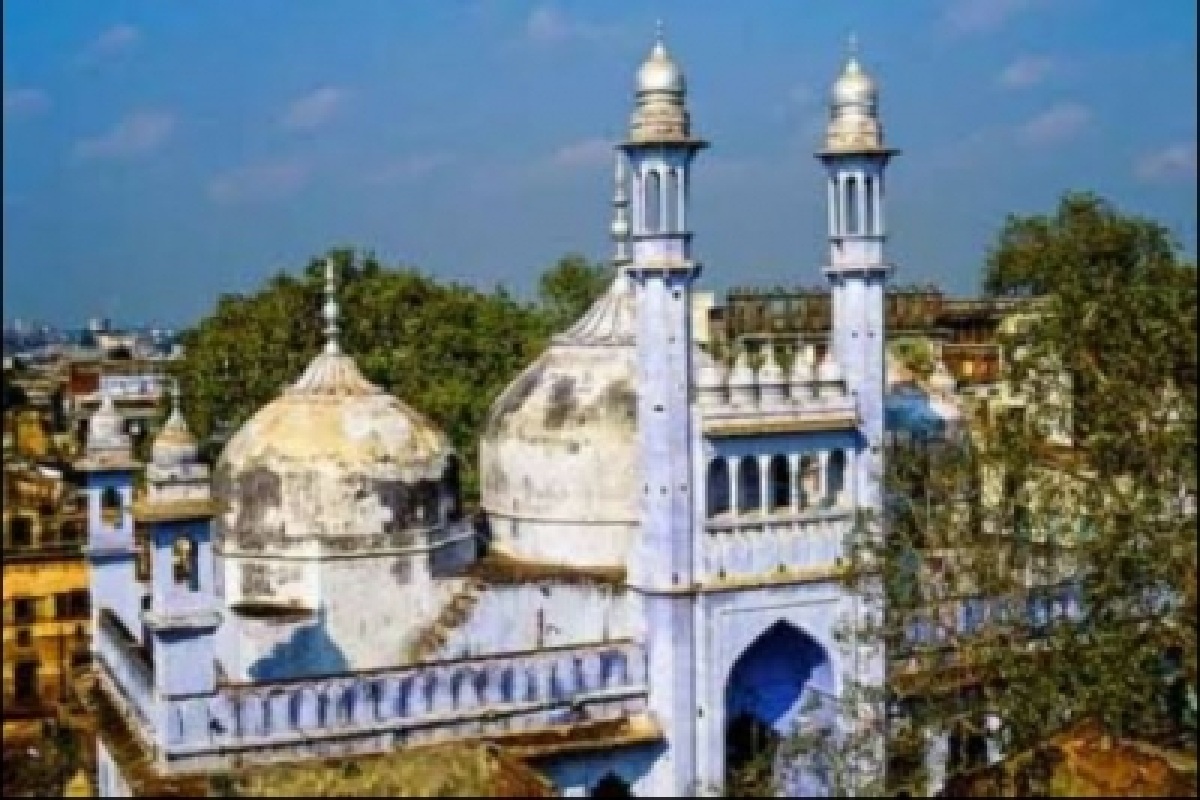The Supreme Court on Friday refused to interfere with the Allahabad High Court order permitting the “scientific survey” of the Gyanvapi mosque premises stating that at this stage it will not go into the root of the matter whether such an order can be passed in the face of Places of Worship (Special Provision) Act, 1991.
Refusing to stay the August 3 high court order, a bench of Chief Justice D Y Chandrachud, heading a bench including Justice J B Pardiwala and Justice Manoj Misra said, “What is frivolous to one is faith to other side.”
Advertisement
Chief Justice Chandrachud said this as senior advocate Huzefa Ahmadi appearing for the Anjuman Intezamia Masjid Committee told the bench that “If someone now comes and files a frivolous plea saying that there is a monument below this structure, will you order ASI survey”.
A similar survey was carried out in the Ayodhya case as well and the same was leaked even before it was used as evidence in court in the case.
In its order not interfering with the high court order, the bench said, “The district judge has ordered scientific investigation by ASI. The high court has found no reason to interfere having set out the legal position while dealing with an interlocutory order of this nature. The high court has introduced certain safeguards. Having regard to the nature and ambit of court appointed commission we are unable to differ with the high court.”
To ensure that no damage is caused, the order said that ASI will use non-invasive methods during the survey. The court said this noting that the High Court order says invasive.. But that must be a typing error or a printer’s devil. That is why we clarified.
Ahmedi read out the statement of object and certain provisions of the Places of Worship (Special Provision) Act to the bench to contend that the religious places that stood on August 15, 1947, their character cannot be interfered with.
CJI Chandrachud made a distinction between the prohibition on the conversion of any place of worship and to maintain the religious character of any place of worship as it existed on August 15, 1947. He said these are two distinct aspects.
Ahmadi told the bench, “Where is the question of excavation here?” He is saying in future he may do it. These are all techniques…, one after another… Let me speak on places of worship act… It is like uncovering wounds of the past and that is what places of worship Act sought to prevent… You are unravelling wounds of past here.”
Ahmadi urged the top court to order that the survey results be kept in a sealed cover and not be leaked, but to no avail. After the passing of the order, Justice Pardiwala said that the Chief Justice has made it clear and I think it protects the interest of both the sides.
Senior advocate Ahmedi said, “I am sanguine on that hope… But history has taught us something else on December 6 (Demolition of Babri Masjid).”
While today not interfering with the high court order permitting ASI survey, earlier on July 24 the Supreme Court had halted till July 26, 05.00 pm, the Varanasi district court order directing the ASI to undertake a survey of the Gyanvapi mosque complex including excavation.
Stopping the survey by the ASI of the mosque complex, the top court had asked the Anjuman Intezamia Masjid Committee to approach the Allahabad High Court against the district court’s order.
On July 21, Varanasi district judge A K Vishvesha ordered the ASI survey of Gyanvapi complex on an application moved by four Hindu women on May 16, 2023.
The order of the district judge, however, excluded the ablution pond area of the complex, which has been sealed on the order of the top court.
On May 12, 2023, the Allahabad High Court had allowed the scientific survey of this purported “shivling” but the top court stayed it on May 19.
The high court on May 12 set aside the Varanasi District judge order which had rejected the application for a scientific survey and carbon dating of the “Shivling” on October 14, 2022.
The high court had directed the Varanasi district judge to proceed, in accordance with law, on the application by the Hindu worshippers for conducting a scientific probe of the “Shivling”.
Petitioners Laxmi Devi and three others had filed a plea in the High Court, challenging the lower court order.
During the survey, a structure — claimed to be a “Shivling” by the Hindu side and a “fountain” by the Muslim side — was found in the mosque premises on May 16, 2022, during a court-mandated survey of the mosque located next to the Kashi Vishwanath temple.
Petitioners Laxmi Devi and three others had filed a plea in the High Court, challenging the lower court order.









